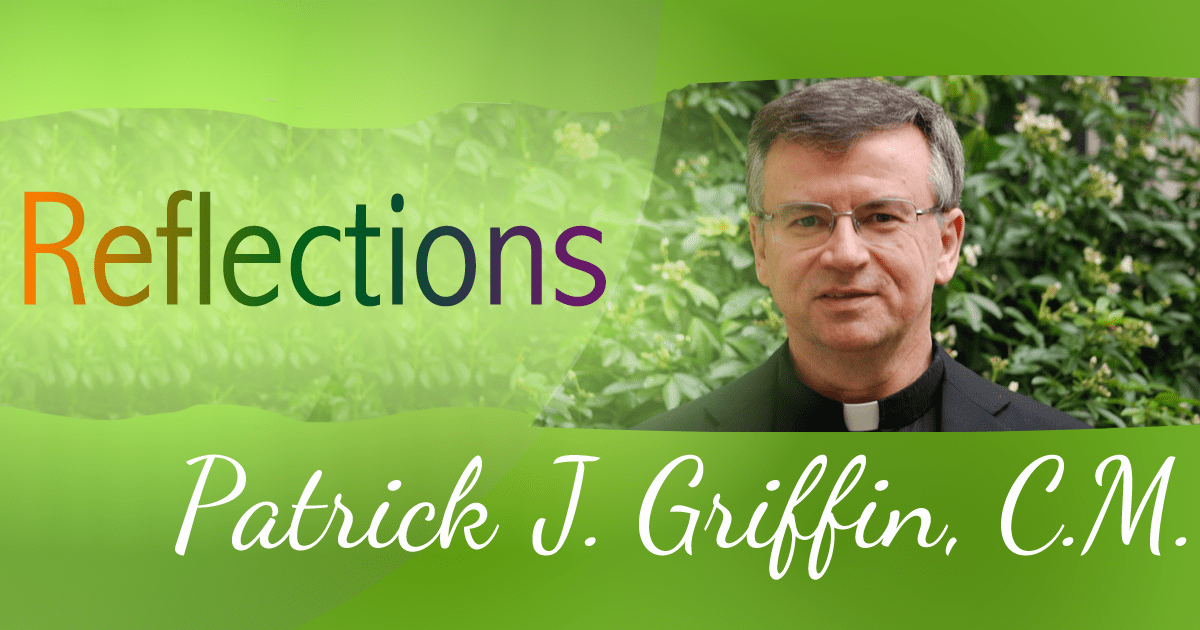The Congregation of the Major Superiors of Men (CMSM) has asked its membership to preach on immigration in these days. That would be true for obvious reasons, don’t you think?
Both of my parents were born in Ireland and immigrated to the USA in the late 40’s as young adults. They married here and raised seven children. When they left Ireland, they had little thought of returning to this land of their birth. I do not think that my father ever returned to his ancestral home. I know that my mother went back to Ireland with several of my siblings and me after I was ordained so as to make the “victory tour” with Fr. Patrick. Immigrating to America involved leaving the only place, people and experiences that they had ever known. I would insist that coming to the USA involved hope for a future that embraced opportunity, children, and a home. I have organized my current reflection on immigration on this last element—a home.
Listening to the Gospel of this past Sunday, we find Jesus welcomed into the home of Martha and Mary. The fact that Jesus entered into the home of these sisters makes a difference in the story. The two sisters model the characteristics that make up a home. In this essay, I do not separate the siblings or prioritize them.
Martha holds up the meaning of a home as a place with walls and a roof where a person experiences protection against the vagaries of the weather. Within this structure, one finds a bedroom, a kitchen, and a living room—among other rooms. There are windows to be cleaned, tables to be filled with food, and floors to be washed. Basically, a home provides a warm shelter for sisters and a family to live in reasonable security and comfort.
Mary directs our attention to another important aspect of the home. Mary draws our hearts to its spiritual side in the broadest sense. A home is where people speak and listen to each other; it is where lessons are taught and learned, where information and life stories are shared, where tears, laughter, and groans all find a place. A home is a spot to which people can invite friends and celebrate meaningful moments. In this human dwelling, the most heart-felt prayers can be lifted. I look to Mary to direct our attention to these intimate and “spiritual” aspects of a home.
Note, however, that for both sisters, their home was where they welcomed Jesus. Martha provided a chair, served a meal, and cleaned the dishes. Mary entertained their guest with her listening, attention and sharing. Both made it a home for Jesus.
When we think of the immigrant situation in our country, we see these men and women who are forced from their homes by reasons that include violence, hunger, and abuse. This context cannot evade our attention. These people carry their earthly treasures on their backs or in their arms—can any of us fail to notice the children? Seeing the young and old held in detention centers on the Southern borders of our country surrounded by wires and guards evokes the contrary vision of a home. Characterizing these people as criminals and worse makes it easier to permit this situation. But, that is lying to ourselves to hide our complicity in an unforgiving attitude. How do these people welcome Jesus among them in this environment? What do they ask of God? How do we enter into their prayer?
My own family background makes me eager to treat these immigrants in a compassionate and just manner. (What about yours?) Without a doubt, no obvious solution to this situation emerges, but the one that plays out now is totally unacceptable. I fear coming before God and being asked about my involvement—or lack—in this story.
Martha and Mary teach us about the elements that make a home. One can describe a home as a safe haven for a family to live and grow together, a harbor that opens unto a future. There, one welcomes the Lord as a cherished guest. This must color the direction in which we seek the solution for our brothers and sisters. Most of us know the blessing of a home; we must strive to make it a reality for others. This path leads to our eternal home.








Fr Pat I’m stealing the “victory tour” from your lovely Mammy for my fiction writing!
My immigrant Italian husband and I, Deirdre O’Brien from Dublin, are highly aware of the persistent racial tension here in the UK.
Our immigrant status leaves us free to collaborate with our liberal Jewish neighbours in living out Leviticus with incoming refugees.
It is a huge problem for our British friends, with inherited ingrained colonial pride, whose compassion is constantly challenged. We’ll need to “colour the direction” of our persuasion to bring these good people on board.
Thank you!